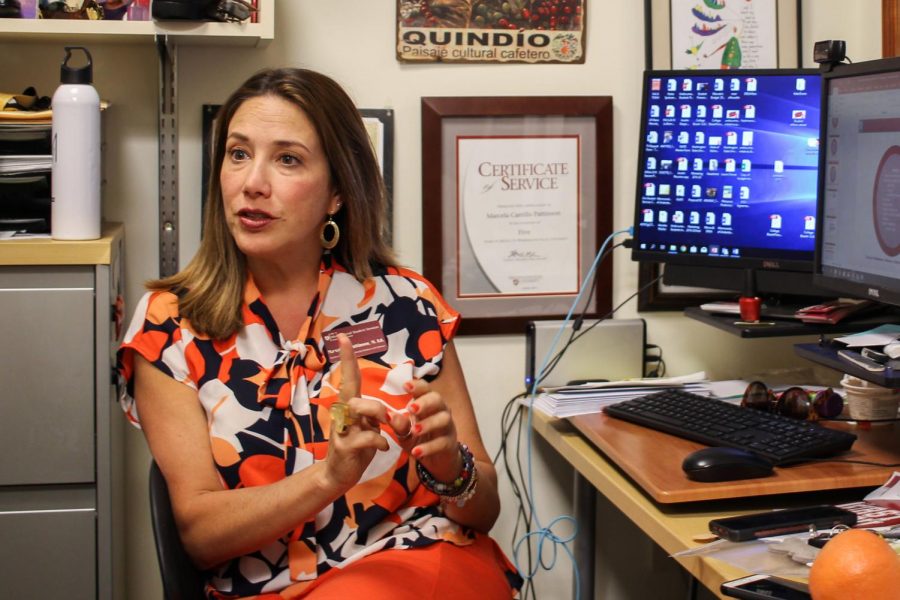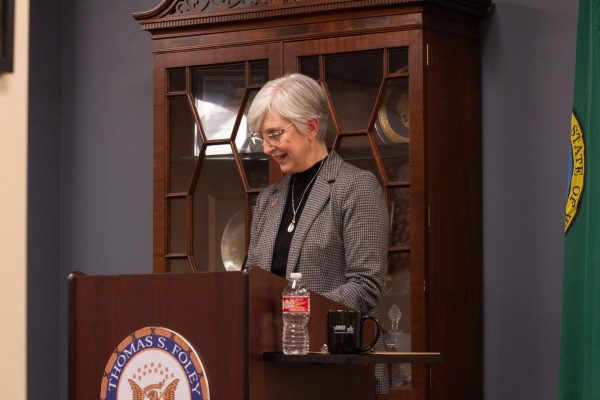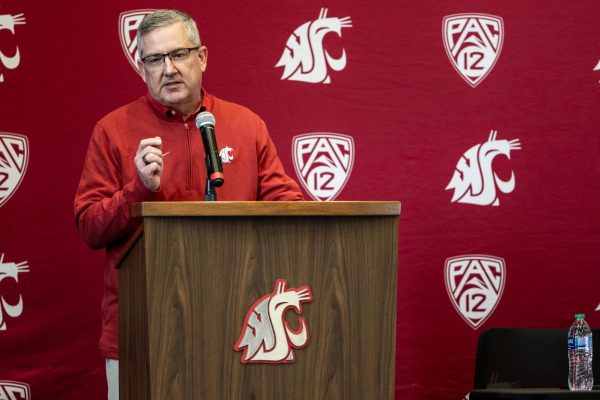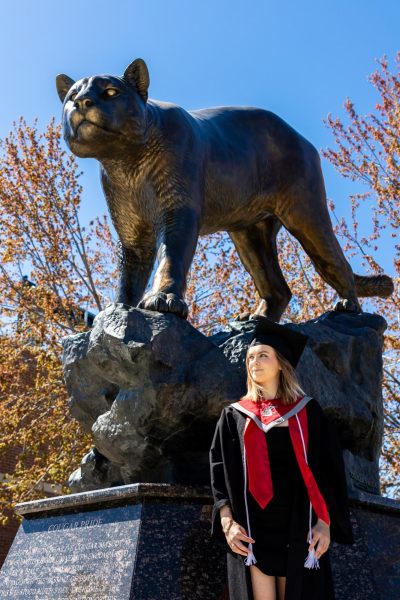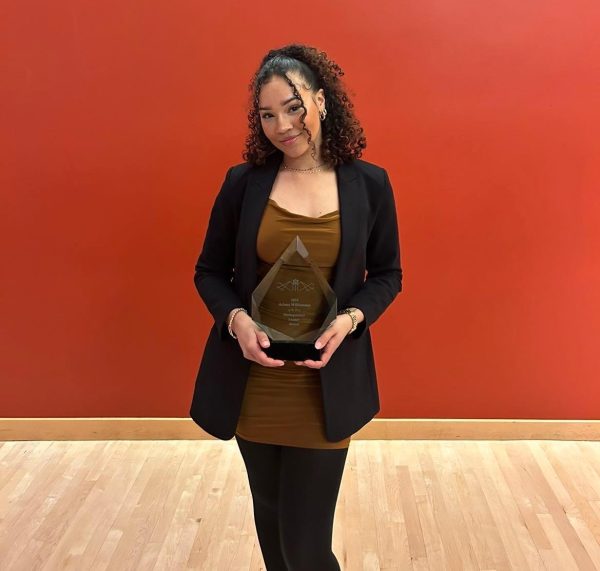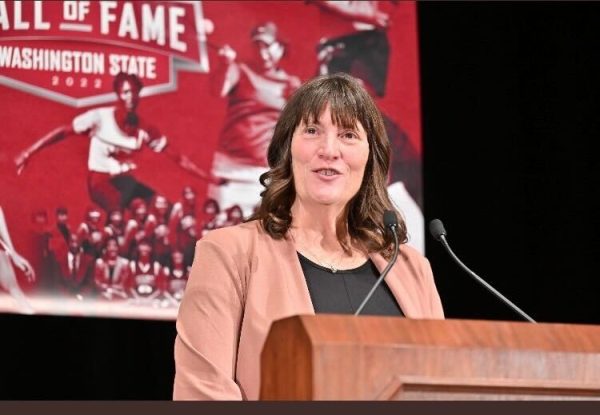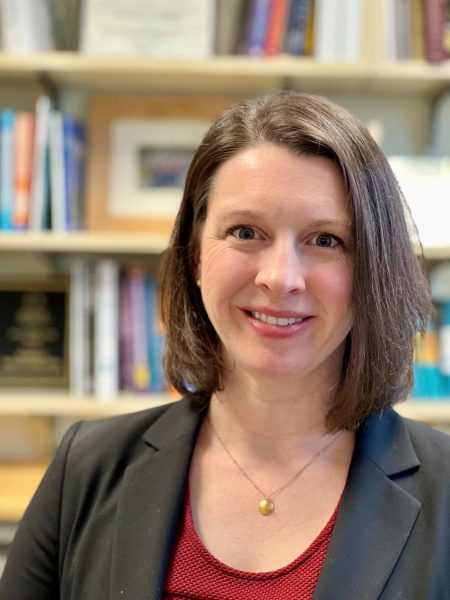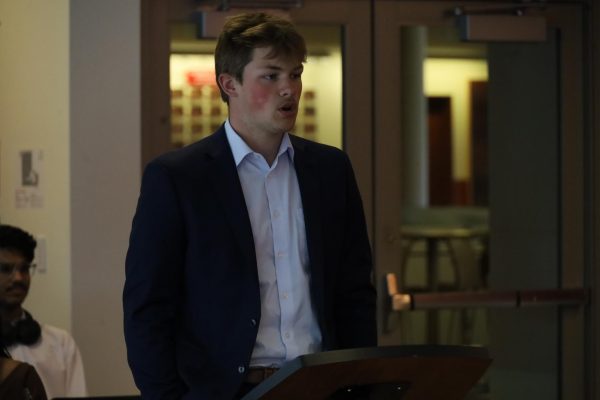‘It’s a very difficult time nationally’
WSU offers resources for first freshman class ineligible for DACA protections
SERENA HOFDAHL | THE DAILY EVERGREEN
Marcela Pattinson, assistant director for community relations and outreach for the Office of Community, Equity, and Inclusive Excellence, says many undocumented students are cautious about services they can and cannot use.
September 9, 2019
Undocumented freshmen were unable to apply for the Deferred Action for Childhood Arrivals program (DACA), which lets students have a job and protects them from deportation. This is the first time since it was enacted that an entire incoming class has not had the protections of the program.
DACA was created in 2012, but in 2017, the Trump administration stopped allowing people to get new DACA applications, said Marcela Pattinson, assistant director for community relations and outreach for the Office of Community, Equity, and Inclusive Excellence.
However, people could still renew their applications, Pattinson said.
The freshmen were too young to apply for DACA during that time period, she said.
Many of the resources for undocumented students are for all students, but undocumented individuals can still benefit from them, Pattinson said.
Undocumented Initiatives Ambassador Linda Vargas said she will be leading Mariposas Poderosas, which is a class that began Thursday and teaches students how to build resilience.
Pattinson said the workbook the class uses is centered around undocumented students and situations they might end up in, but Mariposas Poderosas is for everyone.
“I know sometimes we can touch on topics that are a little sensitive, and that’s the point of it,” Vargas said. “It’s student-led, so it’s going to be led by me, for students, kind of [to] just develop that trust.”
In the spring, Vargas said she will be leading Mariposa Creative Care.
Pattinson said the program was created last year. Maria Celeste Estrada, who led it, wanted to create a program that would heal hatred and fear.
Last spring, the program focused on art therapy. This year, Vargas said she wants to include an environmental aspect so people can connect to nature because she has found that being in the outdoors helps her relax.
Vargas said she is an undocumented student who is a DACA recipient.
“I didn’t come to terms with my undocumented status until pretty late in life. And every student comes to terms with it at some point. For me, it was like senior year [of high school]. And then after that, I … was like I want to make a difference,” she said.
Vargas said it is important for WSU to acknowledge that not all undocumented students are DACA recipients because there is an eligibility requirement for DACA.
Pattinson said many undocumented students are cautious about what services they can and cannot use.
While they may not want to use the food bank in the Lighty Student Services Building because it requires a key and signing in to get into, they should know that there is a food bank for all students, including them, in the Women*s Center in Wilson-Short, Pattinson said. It also includes some non-food items.
There are clothing banks on campus, open to everyone. One of them, Fluid Fashion, is in the Gender Identity/Expression and Sexual Orientation Resource Center. There is also clothing in the Academic Success and Career Center in the Lighty Student Services Building, Pattinson said.
Multicultural Student Services (MSS) offers mentoring and tutoring, she said.
MSS also has the Smart Start Program to help first-generation students navigate college. Pattinson said she specifically helped the undocumented students who were in that program.
Crimson Group adviser Cesar Munguia said many undocumented students are first-generation students.
Crimson Group is a support and activist group for undocumented students and allies, Munguia said.
The organization is a way for older students to serve as role models for younger students, he said.
It is also a way to spread information about national policies relating to undocumented students, he said. The Crimson Group also has trainings so undocumented students know their rights.
Venus Lomeli, Crimson Group fundraiser chair, said the Crimson Group also funds DACA renewals, which cost $495. The organization provides students with about $250 toward a renewal.
The group also raises money for scholarships and leadership building, like going to conferences, Lomeli said.
WSU and UC Berkeley are the two colleges nationwide that offer free legal immigration consultations on campus, she said. WSU is finalizing a contract with an immigration lawyer.
WSU also has a rapid response team, Lomeli said. If there were rumors that the U.S. Immigration and Customs Enforcement (ICE) were on campus, the team would determine if that was true and let people know.
She said someone from the U.S. Customs and Border Protection (CBP) was here for a career fair once, and a picture on social media showed that there was someone from CBP on campus, and that sparked a lot of fear.
“It’s surprising that you don’t think that a body with a certain uniform can cause so much fear but like that one picture alone, all the community members shared it with one another,” Lomeli said.
Crimson Group also marches and speaks to elected officials to advocate for undocumented students, she said.
Pattinson said it is important for faculty and staff to be trained to create alliances and awareness when it comes to issues undocumented students face.
She said she is training faculty, staff, the admissions team, Cougar Connectors and orientation counselors.
When faculty and staff are trained, undocumented students will be able to have a better relationship with them because she said it is important for people to realize that being undocumented does not define them.
Orientation counselors are some of the first people prospective students meet, Pattinson said, so they need to be able to talk about programs for undocumented students.
It is also about recruiting diversity, she said.
“I think it’s very important to be able to bring a potpourri of OCs that represent future students, so we will be able to attract different backgrounds,” Pattinson said.
For prospective students, on the financial aid website, there is a specific tab for undocumented students, which explains HB 1079, a law that lets certain undocumented students have in-state tuition, WAFSA and scholarships, Pattinson said.
One important thing to realize, she said, is it is a misconception that undocumented students who get financial aid through WAFSA are taking money from the state that could be used elsewhere.
She said it is also a misconception that undocumented students do not pay taxes. The government has a way for undocumented individuals to pay taxes since they still use public services taxes pay for, like roads and schools.
However, those who are undocumented do not get the benefits of many of the programs that taxes support, like Medicaid, Pattinson said.
Another resource for undocumented students is a lending library that is a partnership between Undocumented Initiatives and the psychology department, said Amy Nusbaum, doctoral candidate in the department of psychology.
She said it is advertised mainly to undocumented students, but anyone can use it. It is a way for students to save money.
Pattinson said it is a pilot program.
Nusbaum said people can check out textbooks for three days. It is an alternative to the reserve system in the library.
Faculty were asked to donate extra textbooks, specifically those used in large UCORE classes, but while there are many psychology books, they are still working to get other types of textbooks, she said.
Nusbaum said she also has a food bank outside her office in Johnson Tower 217. It also includes personal hygiene products, laundry detergent and dish soap.
“The idea there is to really take away some of the stigma associated with using a food bank. I think a lot of students feel a sense of shame about needing that help, which they shouldn’t, but that’s very much there,” Nusbaum said.
There is a lot of food insecurity on college campuses, she said. This is meant for people who need some food before their next paycheck or who are on campus late and forgot their lunch.
Vargas said many undocumented students are not able to have the privileges that she and other students are able to have as DACA recipients.
“It’s a very difficult time nationally right now. There’s not much we can do, like fight-wise or protest-wise, advocacy-wise,” she said. “I feel like this is just a time to lean back and nurture and grow within our communities and make sure everyone’s in a good place. It’s a time to be proactive, not … reactive.”
For more resources, go to https://dreamers.wsu.edu/home/.

